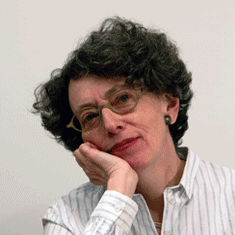Every year the AHA president has the privilege of organizing a series of presidential sessions at the annual meeting. She is, for this purpose, given carte blanche. For the 2015 meeting, I’ve organized two distinct groups of sessions: one addresses a broad topic that connects questions of historical method with current trends of history writing; another concerns the institutions, formal and informal, that sustain our scholarly life or extend it outside the academy.
The four sessions that comprise the former group are all assessments of the influence that classic theorists exercise on the writing of history today. How, they ask collectively, do Marxism, Freudian psychoanalysis, the theoretical claims of Foucault, and poststructuralism in a Derridean vein continue to shape the imagination and practice of historians? To answer those questions, I have invited a group of distinguished historians who span the generations. (You’ll find their names in the sidebar.) The session on poststructuralism doubles as a session in honor of Dominick LaCapra, one of the historians most influential in introducing that current of thought into the American academy; it features LaCapra as commentator. Since the theme of this year’s meeting is “History and the Other Disciplines,” it is especially fitting that the panelists include two historically minded members of other disciplines: a geographer, Gillian Hart, on the Marx panel and an anthropologist, Ann Stoler, on the Foucault panel.
The remaining three sessions have a less obvious thematic unity but are joined together by a shared institutional focus. The first, the plenary session, takes up the problem of the American research library in the early 21st century. Where, especially in light of the trend toward digitized collections, is this venerable institution heading? The jumping-off point for the session—appropriate to the New York City venue of our meeting—is the long controversy over the main research branch of the New York Public Library at Fifth Avenue and 42nd Street in Manhattan. At the end of 2011, the Board of Trustees of the NYPL announced a renovation plan that would remove some 3 million of the library’s books to off-site storage while converting the architecturally celebrated stacks into a computer-oriented library facility serving both researchers and the general public. Outcry (and lawsuits) by scholars, journalists, architecture critics, and organizations of concerned citizens brought about the abandonment of the plan in May 2014. But the conclusion of this one saga does not, of course, answer the question of the future of other research libraries, and that general question, and how the story of the NYPL might bear on it, will be the subject of the session. The panel includes three speakers who were involved in the NYPL controversy—the historians Stanley N. Katz and Joan Wallach Scott, and the New York Times architecture critic, Michael Kimmelman—and two major figures in the American library world—Amy Ryan and Elliott Shore.

Reading Room at the New York Public Library’s Stephen A. Schwarzman Building, a celebrated example of Beaux-Arts architecture. Photo by David Iliff. License: CC-BY-SA 3.0
The second session under this rubric gathers together a group of historians who also serve, or have recently served, as high-level administrators in a variety of institutions of higher education. How does the future of our profession look from their vantage point? The assumptions behind the session are that these “historian-administrators” are necessarily keenly aware of budgetary constraints; that they have personal reasons to be especially concerned about the trajectory of the discipline of history in their institutions; and that they tend to think about problems like these in historical terms. The esteemed historian-administrators who make up the panel include one president of a four-year liberal arts college (Carol Quillen, Davidson Coll.) and three deans of public and private research universities that have undergraduate colleges (John Boyer, Univ. of Chicago; Jack Censer, George Mason Univ.; and Carla Hesse, Univ. of California, Berkeley).
The final panel addresses the topic of historians as public intellectuals in comparative international perspective. It’s clear that different national public spheres offer historians different kinds and degrees of access; they treat historians’ views as more or less relevant to the interests and concerns of the general public. Against this background, the panel brings together five eminent historians who are public intellectuals in their native countries—Roger Chartier (France), Jürgen Kocka (Germany), Partha Chatterjee (India), and Thomas Bender and Ellen Fitzpatrick (United States)—to discuss the kind of public voice that is offered to historians in each of those settings. They will also address the problem of the historical and cultural factors that make a national public sphere more or less receptive to historians’ interventions.
The presidential sessions do not overlap with one another; each occupies a different time slot. Everyone is invited to attend them—and to attend as many as they wish.
This work is licensed under a Creative Commons Attribution-NonCommercial-NoDerivatives 4.0 International License. Attribution must provide author name, article title, Perspectives on History, date of publication, and a link to this page. This license applies only to the article, not to text or images used here by permission.



